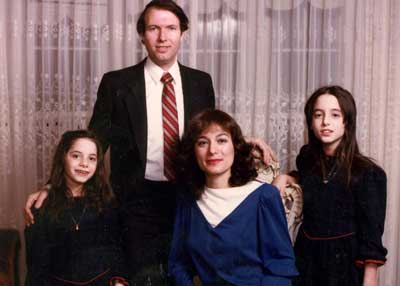amNY.com
By LARRY NEUMEISTER
Associated Press Writer
6:34 PM EDT, October 18, 2007
NEW YORK
A federal appeals panel seemed reluctant Thursday to disturb a judge’s decision to toss out a jury’s finding that two former New York Police Department detectives were part of a racketeering conspiracy responsible for multiple murders and other crimes.
The three-judge panel of the 2nd U.S. Circuit Court of Appeals seemed more receptive to the arguments of lawyers for Louis Eppolito and Stephen Caracappa. A jury found the two lead double lives, working for both the NYPD and Luchese crime family underboss Anthony “Gaspipe” Casso.
U.S. District Judge Jack Weinstein tossed out the convictions of Eppolito and Caracappa two months after the verdict last year, saying the statute of limitations had passed on the crimes, which happened between 1986 and 1990.
The statute of limitations on racketeering charges is five years.
Weinstein has refused to grant bail to the men, who still face drug and money laundering charges. He has called them “dangerous criminals with no degree of credibility” and said the crimes they were accused of were “probably the most heinous series of crimes ever tried in this courthouse.”
Assistant U.S. Attorney Mitra Hormozi told the appeals panel Thursday that Weinstein’s decision to overturn the verdict was wrong, because the men continued to operate as racketeers after they left the police department and moved to Las Vegas. Prosecutors said the men continued to conceal their conspiracy from everyone, continuing a key component of their racketeering crimes.
The panel was skeptical, noting that prosecutors could point only to an instance in 1995 and another in 2004 when the men seemed intent on committing another crime. In 2004, the accused crime was a willingness to provide recreational drugs to participants in an otherwise legal financial transaction.
Judge Robert Sack said: “I don’t see what getting designer drugs for a client had to do with some of the dreadful things they were doing in the 1980s?”
The appeals panel reserved decision.
Joseph Bondy, a lawyer for Eppolito, said he was encouraged by the reception his arguments received from the appeals court. He said the issue of whether someone can be prosecuted even after the statute of limitations expires was important.
“The statute of limitations means something and protects all of us from being prosecuted indefinitely,” Bondy said.
He said his client still has other legal challenges to face.
“This was a really big wall. It was an emotional wall, an important case,” he said.
Copyright © 2007, The Associated Press.

